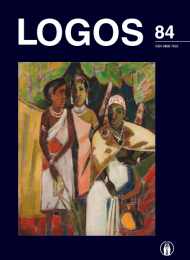Subjekto Samprata Johanno Gottliebo Fichte’ės „Pažinimo Moksle“: Kritinė Analizė
The Conception of the Subject in Fichte’s ’Science of Knowledge’: A Critical Analysis
Author(s): Paulius KukisSubject(s): Epistemology, German Idealism, Philosophy of Science
Published by: Visuomeninė organizacija »LOGOS«
Keywords: Fichte; conception of subjectivity; classical German philosophy; positing; reflection; autonomy;
Summary/Abstract: In this article we delineate the concept of subjectivity in Fichte’s Science of Knowledge. In our critical analysis we distinguish three levels of the dynamic concept of subjectivity and focus on problems which refer to the fundamental determination of their absolute subject. Fichte develops his conception of absolute subjectivity from Kant’s conception of the autonomous subject in the practical part of his critical transcendental philosophy. Absolute subjectivity is not reflected, but simply posited as an absolute thesis. Nonetheless, we claim that the structure of absolute subjectivity becomes unintelligible unless we maintain the principles of heteronomy and reflectivity. Following different ways of interpreting the conception of the absolutely autonomous subject, we conclude that the act of absolute positing cannot be proved through or reflected in theoretical investigation. Hence, there is a demand for a “thetic judgment” by which subject posits itself absolutely.
Journal: LOGOS - A Journal of Religion, Philosophy, Comparative Cultural Studies and Art
- Issue Year: 2015
- Issue No: 84
- Page Range: 141-151
- Page Count: 11
- Language: Lithuanian

